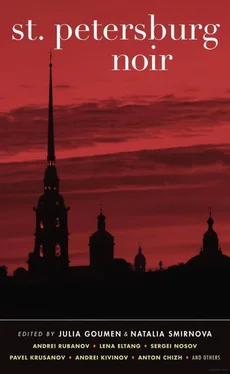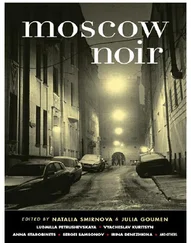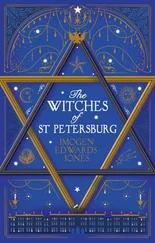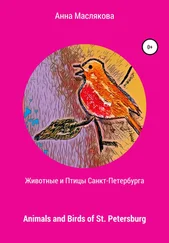Chelnokov regaled it with superlatives. Tsukatov walked around the animal, staring at it, touching it, kneeling beside it, and stroking it. He didn’t try to conceal his satisfaction: exceptional mastery had obviously gone into the making of the piece.
“Ahem,” Demyan Ilich croaked behind his shoulder. “I have another offer from the same source. Right. A bonus. From the manufacturer.”
“Oh?” Tsukatov now felt trust and respect for the curator. These were things not inherent in a person, the way having red hair, protruding ears, or a nose like a duck was. One had to keep on earning them, again and again. Having won them, these qualities would begin to melt away. And one had to start all over from the beginning. Now Demyan Ilich had won Tsukatov’s trust and respect, at least for the time being.
“Ahem. I can get you something special. Right. If you make the decision sometime this week, it should turn out pretty cheap.”
“Cheap? How cheap?”
“Ahem. Almost free of charge.”
“And what is it they’re offering?”
Demyan Ilich grinned, the scratch on his neck turned crimson, and a chain of indescribable emotions ran across his sallow bony face. He came close to Tsukatov, and uttered in a whisper like a conspirator: “An excellent, ahem, an excellent African ostrich.”
A CABINET OF CURIOSITIES
by Eugene Kogan
Kunstkamera
Translated by Margarita Shalina
1.
“Mama,” Ilka’s heartbreaking cry rang out. “Ma-a-a-a-ma!”
Olya bolted to the nursery. She was much too young, skinny as a reed, with long black hair and enormous eyes that seemed to take up half of her face. “What is it, my son?!”
“Mama, he’s back again.” Ilka sat pressed into a corner of the bed with a blanket he’d gathered into an enormous heap —that heap was supposed to barricade the child from whatever it was that his eyes fixed on.
“Son, Ilyusha.” Olya sat down on the bed and embraced her child. “There’s no one here.”
Immediately, Ilka began to wail, pressing himself to his mother.
2.
Peter Alexeyevich disliked the journey from the very start. The second week of March was well under way by the time the delegation had arrived at Riga, which found itself under Swedish ascendancy. His mood had been ruined by General Erik Jönsson Dahlbergh, the regional governor—who’d refused Peter’s request to visit a fortress and survey the construction of fortifications.
“Damn this place,” muttered the czar as he cast off the city.
The mighty delegation moved along slowly, and Czar Peter Alexeyevich was traveling incognito. But to not notice him was difficult—his enormous figure stood out among the rest. It was practically impossible for the czar to conceal his own presence.
3.
Ilka had just turned five. For his birthday, his mother baked him a very beautiful pirog with chocolate filling and she even drizzled it with chocolate icing. Six candles stood atop the tort. Ilka knew how to count to five and was very proud of the fact that he was able to tell everyone about his age. “There was four, and before that three, and before that two, and before that one, and now five,” he declared, laughing at how big and bright he was, and all those around him laughed as well. But the candles turned out to be incomprehensible. Ilka counted up to five and realized in astonishment that something else did indeed come next, but what was a mystery. “Mama,” Ilka looked at Olya questioningly.
“After the number five comes the number six,” smiled Olya.
“Six,” repeated Ilka and calmed down. He liked six as well.
Ilka was small. At a glance, he seemed no more than four years old. He was smart, cheerful, found a common language with other children easily, always shared his toys in the courtyard. When he was three, he gave a shovel and a red plastic bucket as a present to Sveta, the girl next door. But all the neighboring children were taller than him, and Olya worried. Ilka, however, hadn’t yet noticed that he was smaller than everyone else, he didn’t dwell on it—such foolishness is not dwelt upon in childhood.
4.
By August they’d reached the Rhine and descended to Amsterdam. They didn’t linger there though, and carried on further to Zaandam. The czar spent over a week there under the name Peter Mikhailov, a junior officer of the Preobrazhensky Regiment. In Zaandam, Peter Alexeyevich stayed on Krimp Street in the little house of the nautical blacksmith Herrit Kist, whom he’d become acquainted with back in Russia; the handy Dutchman had been at the wharves of Archangel, sharing his expertise. Now Peter Alexeyevich worked in the Netherlands on the wharves of the East India Company—everything had changed, however he did not share his expertise, but drew from others, attentively observing how the clever Dutch shipbuilders labored at their craft.
News inevitably spread that the Russian czar himself resided in that unassuming little house belonging to the nautical blacksmith, so visitors from all countries were drawn to Zaandam. Peter Alexeyevich was forced to quickly leave the city behind—beneath the sail of an acquired iceboat he reached Amsterdam in just over three hours and remained in the capital for some time, carrying out excursions to Utrecht, Leiden, and other places.
5.
Olya dropped out of university when she was in her second year. She was alone, with her small son. At first she’d wanted to continue her education after a year-long maternity leave. She did return, but couldn’t keep up—there wasn’t enough money, work had to be found, the child demanded attention. So, she forgot all about university.
That first year, Ilka was horrid—he bawled ceaselessly, surpassed all the rest when it came to being sick, anything imaginable, he didn’t sleep nights, refused to eat, and generally created a merry life for Olya. Olya feared that his behavior wouldn’t improve. Her mother helped however she could, but she didn’t have the strength either—who can argue with a job and an ailing heart? And there were no men in the family.
But later, when Ilka turned one, everything changed. With what seemed a wave of a magic wand, the likes of which Olya occasionally dreamed of when she forgot herself in a restless dream during the breaks between Ilka’s hysterics. Once, in the middle of the night, the child became dreadfully frightened—either he’d dreamt of something horrible, or perhaps he’d seen something, all he did was wail the whole day, finally he couldn’t even wail— he was hoarse. Then he abruptly calmed down and everything changed. Ilka began to sleep, eat with an appetite, and caused a scandal only with good reason—like if he’d painfully knocked against something or lost his favorite toy. Olya was able to exhale in relief.
6.
In Utrecht, Peter Alexeyevich became acquainted with William of Orange—ruler of the Netherlands and king of England, a vast reformer and navigation enthusiast. Enthralled by shipbuilding, the Russian czar gazed with delight upon the foremost European wharves and scaled one of the whaling vessels himself.
Then, by accident really, he found himself in the anatomical cabinet of Frederik Ruysch, a botanist and professor of anatomy. A specialist in the embalmment of corpses and proprietor of a renowned anatomical museum, Ruysch stupefied Peter Alexeyevich with his art. Once, upon entering the professor’s laboratory, Peter saw the body of a child on a surgical table—the child was dead, but it looked as though it was alive. The talents of the Dutch professor captivated the Russian czar, and Ruysch was extremely pleased.
7.
Olya did calm down somewhat, of course, but then she’d regard this change in her child’s character with disbelief all over again. What would cause a one-year-old to exchange rancor for sweetness in a single day? But the weeks passed and Ilka continued to behave himself well, or as well as a child who had just recently turned one could be expected to behave.
Читать дальше












